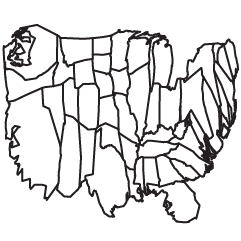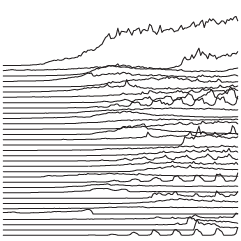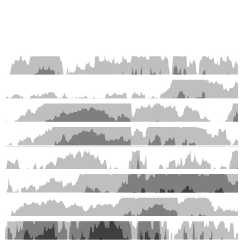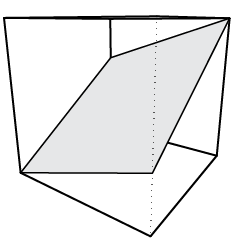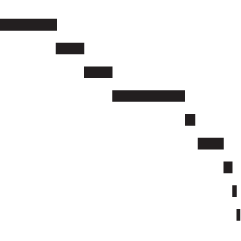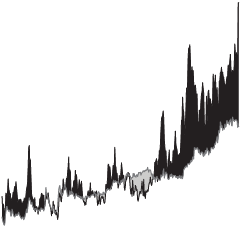Looking for a data scientist? Here’s what you should look for skills-wise.
Resource Links
-
Looking for a data scientist?
-
Imperative vs Declarative
Imperative vs Declarative programming. In the former you tell the computer how to do something, whereas with the latter, you tell the computer what to do. Worthwhile knowing with the recent launch of Vega. [via]
-
The fallacy of new cartography
Cartographer Kenneth Field argues that mapping on the Web isn’t really new. The technology is new, but the underlying cartography needs to remain as foundation for the area to move forward.
-
Magic Grants from Brown Institute for Media Innovation
The Brown Institute for Media Innovation has a call for magic grants for “a small team of graduate students or postgraduates who are expected to demonstrate the relevance and viability of their ideas by implementing a prototype or creating an innovative media product.” The Columbia branch is led by my adviser. Proposal submission deadline is May 3.
-
Jeffrey Hammerbacher, Chief Scientist at Cloudera
Jeffrey Hammerbacher, Chief Scientist at Cloudera talks about big data in Charlie Rose interview.
-
Yelp Dataset Challenge
Yelp is putting up over 200,000 reviews and offering ten $5,000 awards for students who want to make use of their data.
-
Data Scientist opening at NYT
There’s a data scientist opening at The New York Times, probably to fill the gap left by DataKind founder Jake Porway. [via]
-
Watching Drones Drop
Pitch Interactive’s drone visualization spread across the Web yesterday. Wes Grubbs, the founder of the group, talked about the data on HuffPost Live.
-
NLTK Book
The Natural Language Toolkit is a Python library that is commonly used to extract data from text. There’s a free, online-accessible book to learn how to use it.
-
Ph.D. students rethink the tenure track
Ph.D. students rethink the tenure track. The traditional approach is to get your degree and then look for a professor job. That’s changing though, and more people leave academia after they graduate. I think when I first got into graduate school academia was top on my list, too, but after working with my adviser and other professors, it didn’t seem like a job I’d enjoy.
-
Spatial Memory: Mapping Blank Spots in the Cheeseboard Maze
Mapping Blank Spots in the Cheeseboard Maze. “IST Austria Professor Jozsef Csicsvari together with collaborators has succeeded in uncovering processes in which the formation of spatial memory is manifested in a map representation.”
-
Deleted Slides
Science graphics editor Jonathan Corum of The New York Times is great at distilling complex ideas for a wide audience. He gave a talk at Tapestry a while back. He also recently put up his deleted slides.
-
We’ve Reached Peak Infographic, and We’re No Smarter for It
We’ve Reached Peak Infographic, and We’re No Smarter for It. Add another to the list of people who are tired of infographics that don’t say much. Again though, it’s best not to get too bent out of shape over low-quality work, and energy is much better spent working on things that shine.
-
Geo Point Plotter
Geo Point Plotter by Derek Watkins is a quick and dirty mapper. Copy and paste latitude and longitude coordinates, and you get a simple map with dots on it.
-
John Snow’s Cholera data in more formats
John Snow’s Cholera data in more formats. Includes death locations, pump locations, the original map, and Ordinance Survey maps. This could be useful for a class or if you want to kick the tires on some mapping software.
-
A Globe Hack and Good Old Mercator
A Globe Hack and Good Old Mercator. An illustration of the Mercator map projection using pennies. There’s some distortion.
-
Nate Silver Discusses Data Bias, Strangeness of Fame
-
Quandl
Quandl is a search engine for time series data. Similar to DataMarket, but probably with more straightforward download.
-
General Social Survey
The General Social Survey has been running since 1972, and many questions have remain unchanged to make comparisons possible. The data from then to 2012 can now be downloaded in a variety of formats. [via]
-
Hack D.C.
Hackathons to put open data to use.

 Visualize This: The FlowingData Guide to Design, Visualization, and Statistics (2nd Edition)
Visualize This: The FlowingData Guide to Design, Visualization, and Statistics (2nd Edition)

